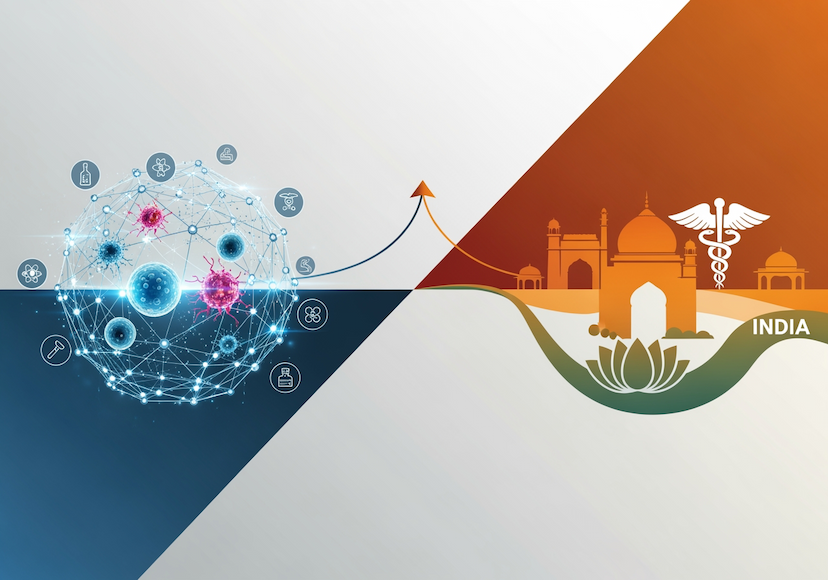
Common Myths About Neuro Surgery Doctors Bust Them
14 Nov, 2025
 Healthtrip
Healthtrip- < li>Myth: Neurosurgery is Always a Last Resort – Doctors Explain When It's Necessary < li>Myth: Neurosurgery is Incredibly Risky – Understanding the Actual Success Rates with Memorial Sisli Hospital and LIV Hospital, Istanbul < li>Myth: Neurosurgery Always Involves Brain Surgery – Exploring Procedures for Spine and Peripheral Nerves at Fortis Memorial Research Institute, Gurgaon < li>Myth: Recovery from Neurosurgery is Long and Difficult – Examining Post-Operative Care and Rehabilitation at Vejthani Hospital
- Myth: Neurosurgery is Only for Tumors and Trauma – Discovering Treatments for Other Conditions, such as Parkinson’s disease with NPISTANBUL Brain Hospital < li>Myth: Neurosurgery will drastically change my personality – How does Neurosurgery not affect your personality by doctors at Singapore General Hospital
- Conclusion: Separating Fact from Fiction in Neurosurgery
Myth 1: Neurosurgery is Always a Last Resort
It's a common perception that neurosurgery is only considered when all other treatment options have failed. This isn't always the case. While it's true that doctors often explore non-surgical interventions first, such as medication, physical therapy, or injections, there are instances where neurosurgery is the most effective, and sometimes the only, solution from the outset. Conditions like certain brain tumors, severe spinal cord compression, or aneurysms might require immediate surgical intervention to prevent further damage or even save a life. The decision to proceed with neurosurgery is a complex one, made after careful consideration of various factors, including the patient's overall health, the severity of the condition, and the potential benefits and risks of surgery. Hospitals like Saudi German Hospital Cairo in Egypt have neurosurgery departments that conduct detailed pre-operative assessments to determine the best course of action for each individual. So, don't think of it as the end of the line, but potentially the start of a new, healthier chapter.
Most popular procedures in India
Myth 2: Neurosurgery Always Results in Paralysis
The fear of paralysis is a significant concern for many people facing neurosurgery. While it's true that some neurosurgical procedures carry a risk of neurological deficits, including weakness or paralysis, advancements in surgical techniques and technology have significantly reduced these risks. Modern neurosurgery often involves minimally invasive approaches, intraoperative monitoring, and image-guided navigation, allowing surgeons to operate with greater precision and minimize damage to surrounding tissues. Furthermore, rehabilitation plays a crucial role in recovery. Post-operative physical and occupational therapy can help patients regain strength, mobility, and function. At facilities like Vejthani Hospital in Bangkok, Thailand, a multidisciplinary approach to neurosurgery ensures comprehensive care, including rehabilitation services tailored to individual needs. It's important to remember that paralysis is not an inevitable outcome, and many patients experience significant improvement in their neurological function after surgery.
Wellness Treatments
Give yourself the time to relax
Lowest Prices Guaranteed!

Lowest Prices Guaranteed!
Myth 3: Recovery from Neurosurgery is Long and Painful
While it's undeniable that recovery from neurosurgery requires time and effort, the perception of it being universally long and excruciatingly painful is often exaggerated. The recovery process varies greatly depending on the type of surgery, the patient's overall health, and their individual pain tolerance. Minimally invasive techniques, which are increasingly common, often result in smaller incisions, less tissue damage, and faster recovery times compared to traditional open surgery. Pain management strategies have also improved significantly, with a range of medications and therapies available to help patients manage discomfort effectively. Many hospitals, such as Memorial Bahçelievler Hospital in Istanbul, focus on patient-centered care, providing personalized pain management plans and comprehensive post-operative support to ensure a comfortable and successful recovery. With the right care and support, many patients are surprised by how well they can manage their pain and how quickly they can return to their normal activities.
Myth 4: All Brain Tumors Require Neurosurgery
The discovery of a brain tumor can be incredibly frightening, and many people automatically assume that surgery is the only option. However, this isn't always the case. The treatment approach for a brain tumor depends on several factors, including the type of tumor, its size, location, and growth rate, as well as the patient's overall health. Some tumors may be benign and slow-growing, requiring only observation and monitoring. Others may be more effectively treated with radiation therapy or chemotherapy, either alone or in combination with surgery. In certain cases, stereotactic radiosurgery, a non-invasive technique that delivers highly focused radiation to the tumor, may be an option. At hospitals like Quironsalud Hospital Murcia in Spain, neuro-oncology teams carefully evaluate each case to determine the most appropriate and effective treatment strategy, which may or may not involve surgery. The goal is always to provide the best possible outcome while minimizing the risks and side effects of treatment.
Myth 5: Neurosurgery is Only for Brain Problems
The name "neurosurgery" often leads people to believe that it's solely focused on treating conditions affecting the brain. While brain surgery is a significant part of the field, neurosurgery actually encompasses a much broader range of conditions affecting the entire nervous system, including the brain, spinal cord, peripheral nerves, and their surrounding structures. Neurosurgeons treat conditions such as spinal stenosis, herniated discs, nerve compression syndromes like carpal tunnel syndrome, and injuries to peripheral nerves. They also perform procedures to relieve pain, such as spinal cord stimulation and nerve blocks. Facilities like Fortis Escorts Heart Institute in New Delhi have dedicated neurosurgery departments that address a wide spectrum of neurological disorders. So, whether it's a brain tumor, a pinched nerve in your back, or a traumatic injury to your spinal cord, neurosurgeons are equipped to provide expert diagnosis and treatment.
Myth: Neurosurgery is Always a Last Resort – Doctors Explain When It's Necessary
For many, the word "neurosurgery" conjures up images of desperate, last-ditch efforts to save a life. It’s often perceived as the option of last resort, a final plea when all other treatments have failed. But is that really the case? The reality is far more nuanced. Modern neurosurgery is a sophisticated field with a wide array of procedures, and it's not always about life-or-death scenarios. Sometimes, it's about improving quality of life, managing chronic pain, or preventing further neurological decline. Imagine living with debilitating back pain for years, trying every medication and physical therapy regimen under the sun, only to find minimal relief. In such cases, a neurosurgeon might recommend a minimally invasive procedure to address the underlying issue, offering a chance for a pain-free and active life. This proactive approach is becoming increasingly common, with neurosurgeons focusing on early intervention to prevent conditions from worsening. Hospitals like Saudi German Hospital Cairo, Egypt are equipped with cutting-edge technology and skilled neurosurgeons who can assess your condition and determine the most appropriate course of action, whether it's surgical or non-surgical. So, the next time you hear the word "neurosurgery," remember that it's not always the end of the line; it could be the beginning of a better one.
Myth: Neurosurgery is Incredibly Risky – Understanding the Actual Success Rates with Memorial Sisli Hospital and LIV Hospital, Istanbul
The human brain, after all, is incredibly complex. The fear surrounding neurosurgery is understandable. It's easy to imagine a delicate procedure going wrong, leading to catastrophic consequences. However, advancements in technology and surgical techniques have significantly improved the safety and success rates of neurosurgical procedures. Modern neurosurgery relies on advanced imaging, such as MRI and CT scans, to provide surgeons with a detailed roadmap of the brain and spine. Minimally invasive techniques, like endoscopic surgery, allow surgeons to operate through small incisions, reducing tissue damage and recovery time. Stereotactic surgery uses precise 3D coordinates to target specific areas of the brain, minimizing the risk of damage to surrounding tissues. Hospitals like Memorial Sisli Hospital and LIV Hospital in Istanbul are known for their state-of-the-art facilities and experienced neurosurgeons who utilize these advanced techniques to achieve optimal outcomes. They meticulously plan each surgery, taking into account the patient's individual anatomy and condition. While every surgical procedure carries some inherent risk, the success rates for many neurosurgical procedures are surprisingly high. For example, surgeries for herniated discs or spinal stenosis often have success rates exceeding 90%. By understanding the actual risks and benefits of neurosurgery, and by choosing a skilled and experienced surgical team, you can make an informed decision about your treatment options.
Myth: Neurosurgery Always Involves Brain Surgery – Exploring Procedures for Spine and Peripheral Nerves at Fortis Memorial Research Institute, Gurgaon
When we think of neurosurgery, the image that usually pops into our heads is that of a surgeon working on the brain. But neurosurgery encompasses a much broader range of procedures, extending far beyond the confines of the skull. The nervous system is a vast network that extends throughout the body, and neurosurgeons are trained to treat conditions affecting the spine and peripheral nerves as well. Spinal surgery is a common area of neurosurgical practice, addressing issues such as herniated discs, spinal stenosis, and scoliosis. These conditions can cause debilitating pain, numbness, and weakness, and neurosurgery can provide significant relief. Similarly, neurosurgeons also treat conditions affecting the peripheral nerves, such as carpal tunnel syndrome, ulnar nerve entrapment, and peripheral neuropathy. These conditions can cause pain, tingling, and numbness in the hands, arms, and legs, and neurosurgical interventions can help restore function and alleviate symptoms. Fortis Memorial Research Institute, Gurgaon, is a leading center for neurosurgery, offering a wide range of procedures for the spine and peripheral nerves. Their team of experienced neurosurgeons utilizes advanced techniques to provide personalized care and achieve optimal outcomes. So, remember that neurosurgery isn't just about the brain; it's about the entire nervous system, and it can offer solutions for a wide variety of conditions affecting your quality of life.
Also Read:
Myth: Recovery from Neurosurgery is Long and Difficult – Examining Post-Operative Care and Rehabilitation at Vejthani Hospital
One of the most significant anxieties surrounding neurosurgery is the perceived length and arduous nature of the recovery period. Many believe that it entails months, if not years, of debilitating pain, limited mobility, and a drastically reduced quality of life. While it's undeniable that neurosurgery, like any major surgical intervention, requires a period of recuperation, the reality is often far less daunting than anticipated. The recovery experience varies greatly, depending on the specific procedure, the patient's overall health, and the quality of post-operative care received. Modern advancements in surgical techniques, pain management, and rehabilitation protocols have significantly shortened recovery times and improved patient outcomes. At Vejthani Hospital in Thailand, for instance, a comprehensive approach to patient care is emphasized, focusing not only on the surgical procedure itself but also on providing personalized post-operative support and rehabilitation programs tailored to individual needs. This holistic approach ensures that patients receive the necessary resources and guidance to navigate their recovery journey effectively, minimizing discomfort and maximizing their potential for a swift and successful return to their daily lives. It's all about personalized care and a strong support system.
The notion of a universally long and difficult neurosurgery recovery is largely based on outdated practices and generalizations. Today, minimally invasive techniques, such as endoscopic surgery and stereotactic radiosurgery, are increasingly employed, resulting in smaller incisions, reduced tissue damage, and faster healing times. Moreover, advancements in pain management strategies, including the use of targeted nerve blocks and patient-controlled analgesia, have significantly reduced post-operative discomfort. Rehabilitation plays a pivotal role in the recovery process, and hospitals like Vejthani Hospital are equipped with state-of-the-art rehabilitation facilities and a team of experienced therapists who work closely with patients to restore their physical function, strength, and mobility. These programs often include physical therapy, occupational therapy, and speech therapy, depending on the specific needs of the patient. The focus is on gradually increasing activity levels, improving balance and coordination, and regaining independence in daily tasks. Early mobilization, as soon as medically feasible, is encouraged to prevent complications such as blood clots and muscle weakness. With dedicated care and a proactive approach to rehabilitation, many patients are able to return to their normal activities within a matter of weeks or months, rather than years.
It's crucial to remember that every individual's recovery journey is unique, influenced by factors such as age, pre-existing medical conditions, and the complexity of the surgical procedure. However, with advancements in medical technology, personalized care plans, and a strong emphasis on rehabilitation, the recovery process from neurosurgery is often far more manageable and less time-consuming than many people imagine. By choosing a reputable hospital like Vejthani Hospital, which prioritizes patient-centered care and offers comprehensive rehabilitation services, individuals undergoing neurosurgery can significantly improve their chances of a smooth and successful recovery. This allows them not only to regain their physical function but also to reclaim their lives and return to the activities they enjoy. It’s a testament to the power of modern medicine and the dedication of healthcare professionals who are committed to providing the best possible outcomes for their patients. They understand that it is a challenging journey which is not as difficult as perceived by many.
Also Read:
Myth: Neurosurgery is Only for Tumors and Trauma – Discovering Treatments for Other Conditions, such as Parkinson’s disease with NPISTANBUL Brain Hospital
The common perception that neurosurgery is solely reserved for treating brain tumors and traumatic brain injuries is a significant oversimplification of the field. While these are undoubtedly important applications, neurosurgery encompasses a far broader range of conditions, many of which are chronic and debilitating illnesses that significantly impact a person's quality of life. From movement disorders like Parkinson's disease and essential tremor to chronic pain syndromes and epilepsy, neurosurgical interventions can offer relief and improved functionality when other treatment options have proven insufficient. These conditions often involve intricate neural pathways and circuits, and neurosurgery provides a means to modulate or correct these pathways, restoring balance and alleviating symptoms. At NPISTANBUL Brain Hospital, the focus lies on comprehensive neurological care, with specialized treatments for conditions beyond tumors and trauma, demonstrating the breadth of modern neurosurgical applications. They delve into the intricacies of the brain to provide solutions that enhance patients' lives.
For instance, Deep Brain Stimulation (DBS) is a neurosurgical procedure widely used in the treatment of Parkinson's disease, essential tremor, and dystonia. This involves implanting electrodes in specific areas of the brain to deliver controlled electrical impulses, which can help to regulate abnormal brain activity and reduce symptoms such as tremors, rigidity, and slowness of movement. NPISTANBUL Brain Hospital offers DBS, utilizing advanced imaging and surgical techniques to ensure precise electrode placement and optimal outcomes. Similarly, neurosurgical procedures can be employed to address chronic pain conditions such as trigeminal neuralgia, a debilitating condition characterized by intense facial pain. Microvascular decompression surgery can relieve pressure on the trigeminal nerve, providing long-term pain relief for many patients. Epilepsy, another neurological disorder, can also be treated with neurosurgical interventions, such as resection of the seizure focus or implantation of a vagus nerve stimulator, which can help to reduce the frequency and severity of seizures. These are just a few examples of how neurosurgery extends beyond the treatment of tumors and trauma, offering hope and improved quality of life for individuals suffering from a wide range of neurological conditions.
The advancement of neurosurgical techniques and technologies has opened up new possibilities for treating conditions that were once considered untreatable. With minimally invasive approaches and sophisticated imaging guidance, neurosurgeons can now target specific areas of the brain or spinal cord with greater precision and less risk. Moreover, ongoing research and clinical trials are continually expanding the scope of neurosurgical interventions, exploring new treatments for conditions such as Alzheimer's disease, depression, and obsessive-compulsive disorder. By challenging the misconception that neurosurgery is only for tumors and trauma, we can broaden our understanding of the potential benefits of neurosurgical interventions and empower individuals to seek appropriate treatment for a wider range of neurological conditions. Hospitals like NPISTANBUL Brain Hospital are at the forefront of this evolving landscape, providing cutting-edge neurosurgical care and offering hope to patients with complex neurological disorders. It is all about thinking beyond the traditional applications of Neurosurgery for better treatment.
Also Read:
Myth: Neurosurgery will drastically change my personality – How does Neurosurgery not affect your personality by doctors at Singapore General Hospital
Perhaps one of the most deeply ingrained fears surrounding neurosurgery is the belief that it will fundamentally alter a person's personality. The brain, after all, is the seat of our thoughts, emotions, and behaviors, and the prospect of undergoing surgery on this delicate organ can understandably evoke anxieties about losing one's sense of self. However, the notion that neurosurgery inevitably leads to drastic personality changes is a gross exaggeration, largely fueled by misconceptions and a lack of understanding of modern neurosurgical practices. While it's true that certain neurosurgical procedures can have temporary effects on mood, behavior, or cognitive function, these changes are typically transient and do not represent a permanent alteration of one's core personality. The medical experts at Singapore General Hospital emphasize that neurosurgery aims to treat specific neurological conditions while preserving the patient's overall cognitive and emotional well-being.
The brain is an incredibly complex organ, with different regions responsible for various functions. Modern neurosurgical techniques prioritize precision and accuracy, targeting specific areas of the brain while minimizing damage to surrounding tissues. Minimally invasive approaches, such as stereotactic radiosurgery and endoscopic surgery, further reduce the risk of unintended consequences. Moreover, neurosurgeons carefully assess each patient's individual circumstances, taking into account their medical history, cognitive function, and emotional state, to tailor the surgical approach and minimize the potential for adverse effects. In cases where there is a risk of impacting cognitive or emotional function, neurosurgeons often employ pre-operative mapping techniques to identify critical brain areas and avoid damaging them during surgery. These techniques involve stimulating different parts of the brain while the patient is awake to determine their specific functions, allowing the surgeon to navigate the surgical field with greater precision. The Singapore General Hospital employs cutting edge technology for the betterment of patients’ health.
It's important to distinguish between temporary post-operative effects and permanent personality changes. Following neurosurgery, some patients may experience temporary changes in mood, such as irritability, anxiety, or depression. These changes are often related to the stress of surgery, medication side effects, or the recovery process itself. Similarly, some patients may experience temporary cognitive deficits, such as difficulty with memory, attention, or language. However, these effects typically resolve over time with rehabilitation and supportive care. Permanent personality changes are rare and are usually associated with specific types of neurosurgical procedures, such as those involving the frontal lobes, which are responsible for executive functions and personality traits. Even in these cases, the changes are often subtle and do not fundamentally alter the person's core identity. By understanding the complexities of the brain and employing advanced surgical techniques, neurosurgeons can minimize the risk of personality changes and help patients maintain their sense of self. The skilled doctors at hospitals like Singapore General Hospital ensure that the patient comes first and the neurological treatment does not drastically affect the patient’s personality.
Also Read:
Conclusion: Separating Fact from Fiction in Neurosurgery
Neurosurgery, a field shrouded in both awe and apprehension, often falls prey to misconceptions that can deter individuals from seeking potentially life-altering treatment. This exploration has aimed to dismantle some of the most pervasive myths, replacing fear with a more informed understanding. From the misconception of neurosurgery as a last resort to the overstated nature of its risks, and the notion that recovery is always prolonged and difficult, we've seen how advancements in medical technology and personalized care are reshaping the landscape of neurosurgical interventions. It's crucial to recognize that neurosurgery extends far beyond treating tumors and trauma; it offers hope for a multitude of neurological conditions, improving quality of life for countless individuals. The fear of personality changes, too, is often unfounded, as modern techniques prioritize precision and preservation of cognitive function. By separating fact from fiction, we empower individuals to make informed decisions about their health, fostering a more realistic and hopeful outlook on neurosurgery.
Related Blogs

Top Pre-Surgery Tests Required for Cancer Treatment
Explore evaluations, innovations, hospital comparisons, and global success insights for

Why India Leads in Affordable Cancer Treatment Analysis
Explore evaluations, innovations, hospital comparisons, and global success insights for

Patient Satisfaction Scores for Cancer Treatment at Healthtrip Partner Hospitals
Explore evaluations, innovations, hospital comparisons, and global success insights for

How to Choose the Right Hospital for Cancer Treatment Using Healthtrip's Criteria
Explore evaluations, innovations, hospital comparisons, and global success insights for

Latest Global Innovations in Cancer Treatment Now Available in India
Explore evaluations, innovations, hospital comparisons, and global success insights for

How Healthtrip Ensures Evidence-Based Care in Cancer Treatment
Explore evaluations, innovations, hospital comparisons, and global success insights for










